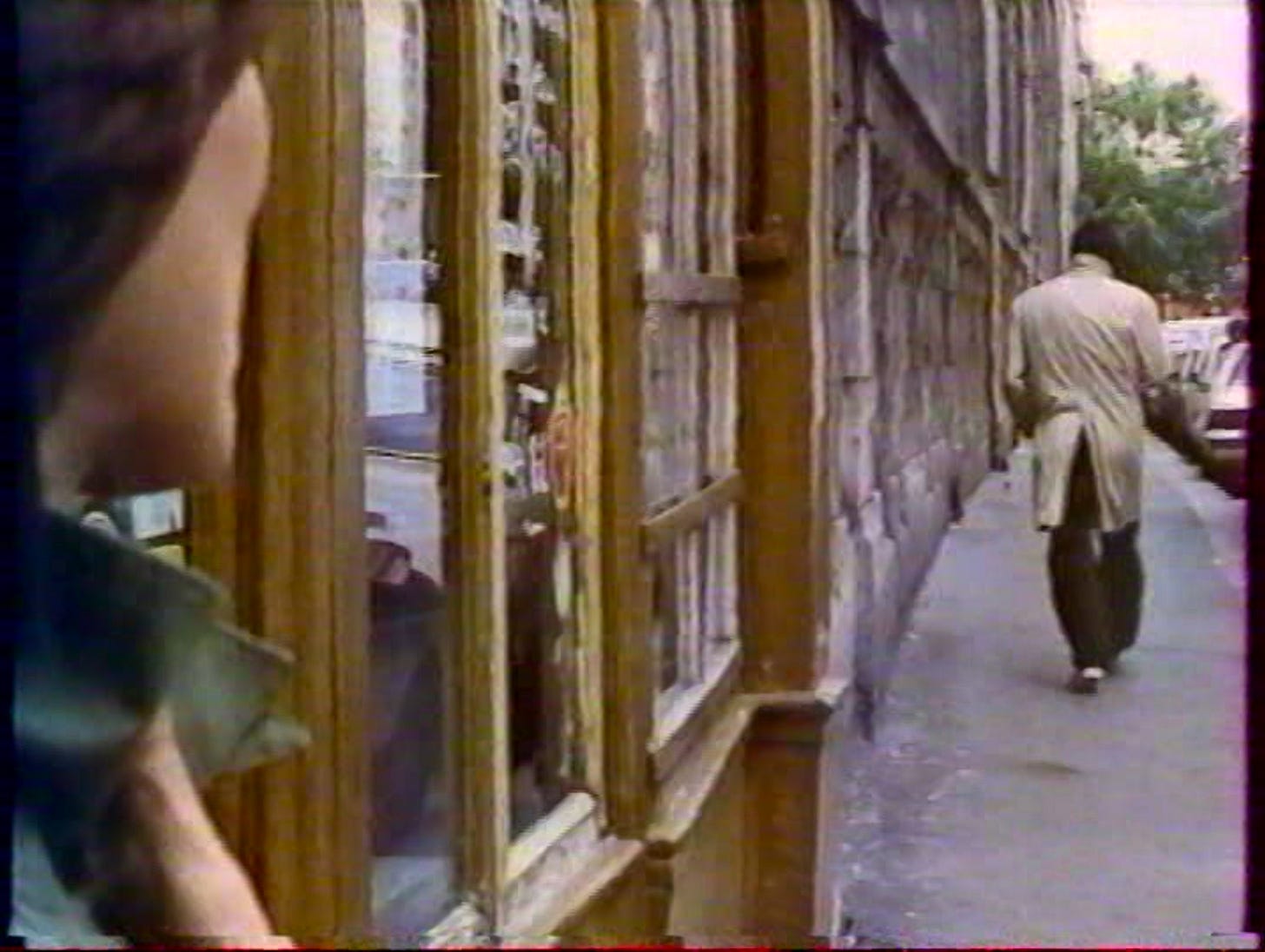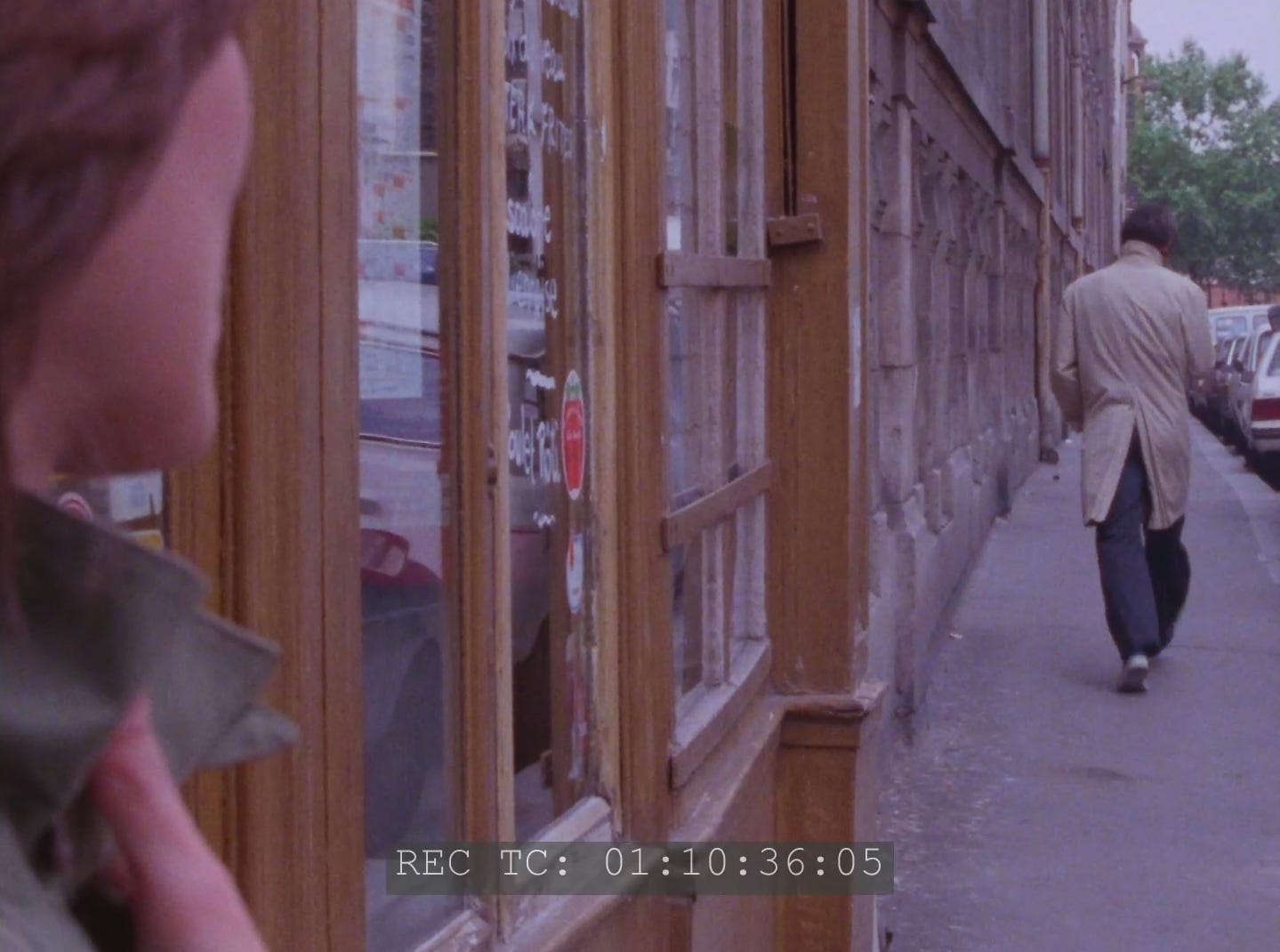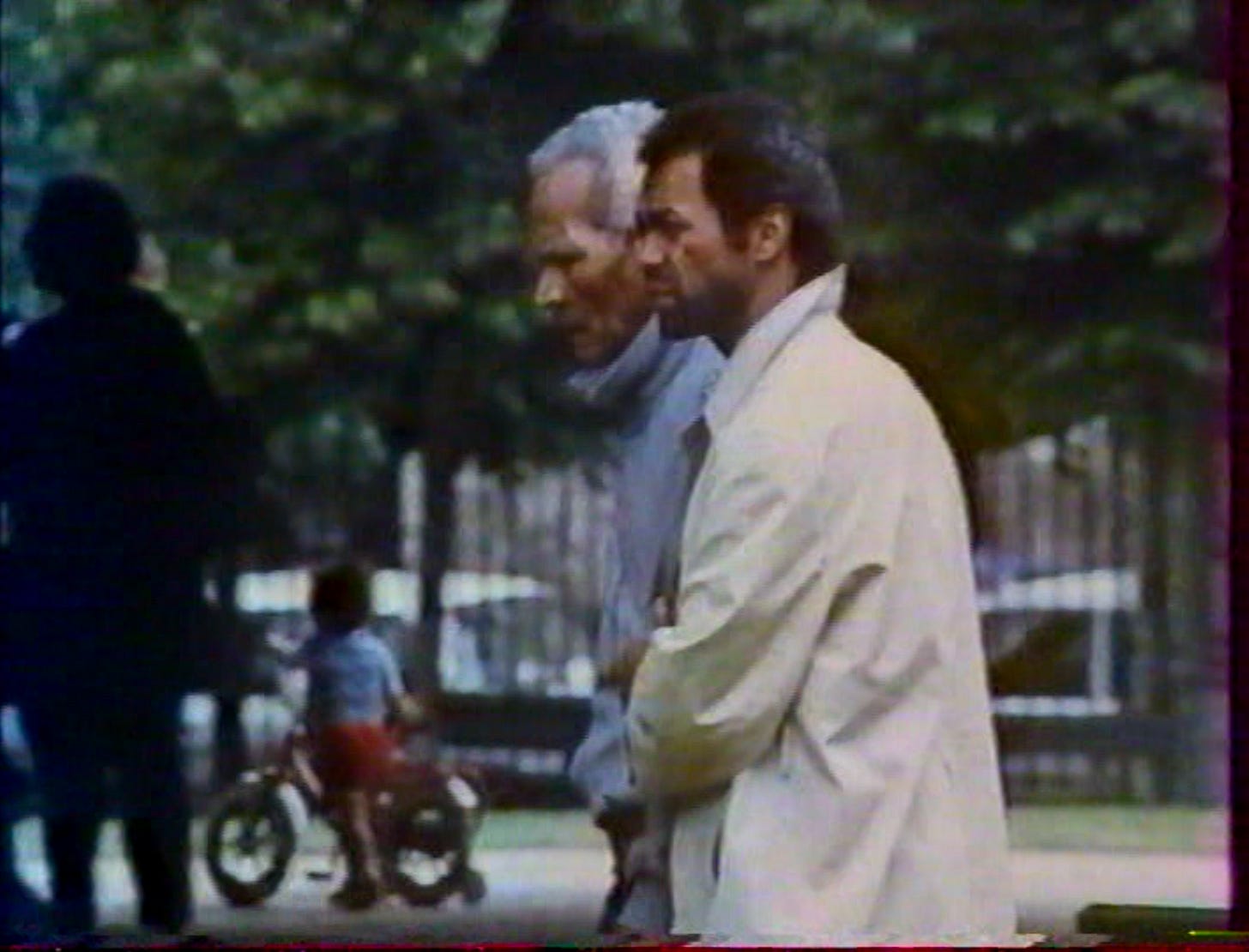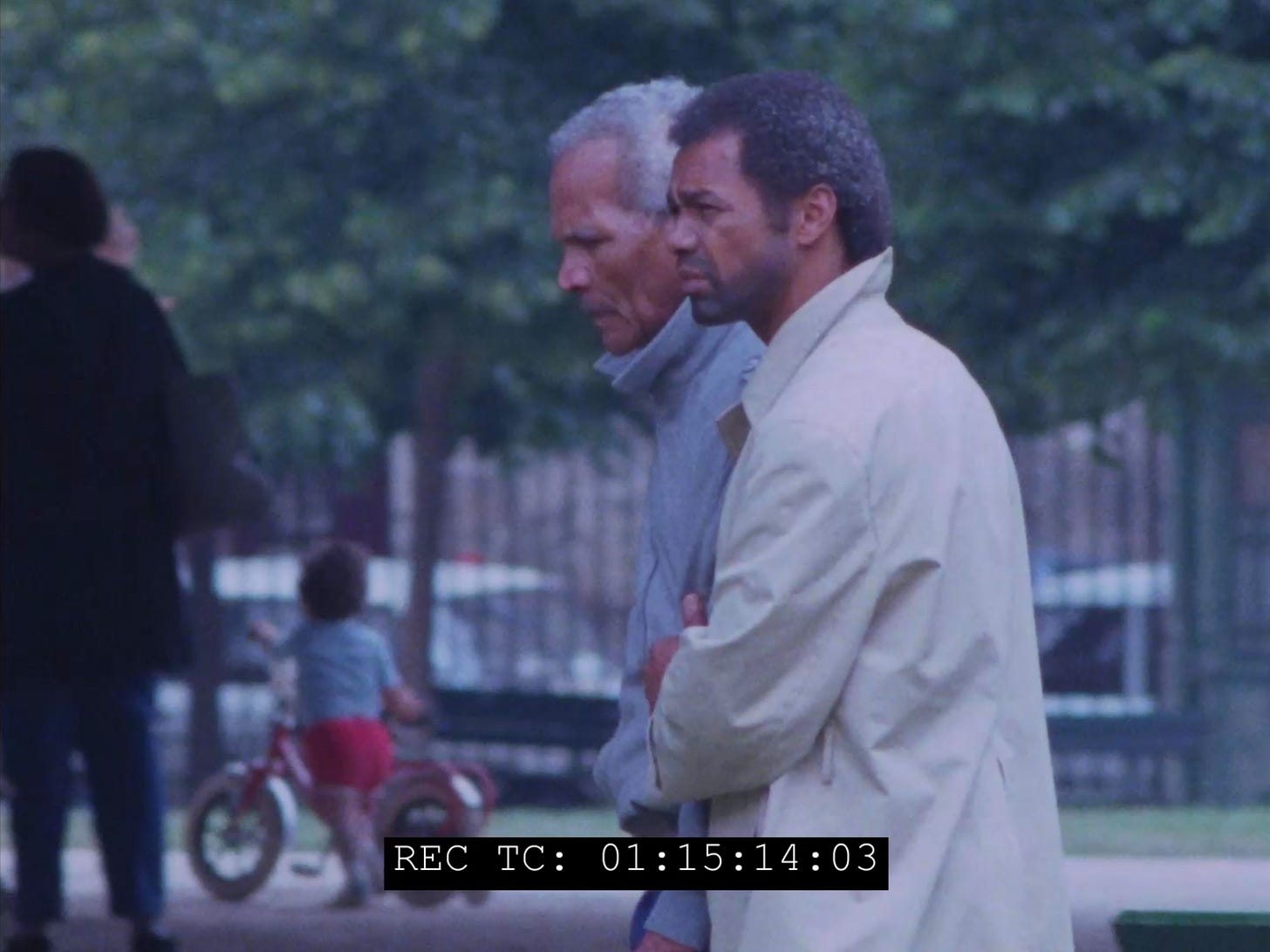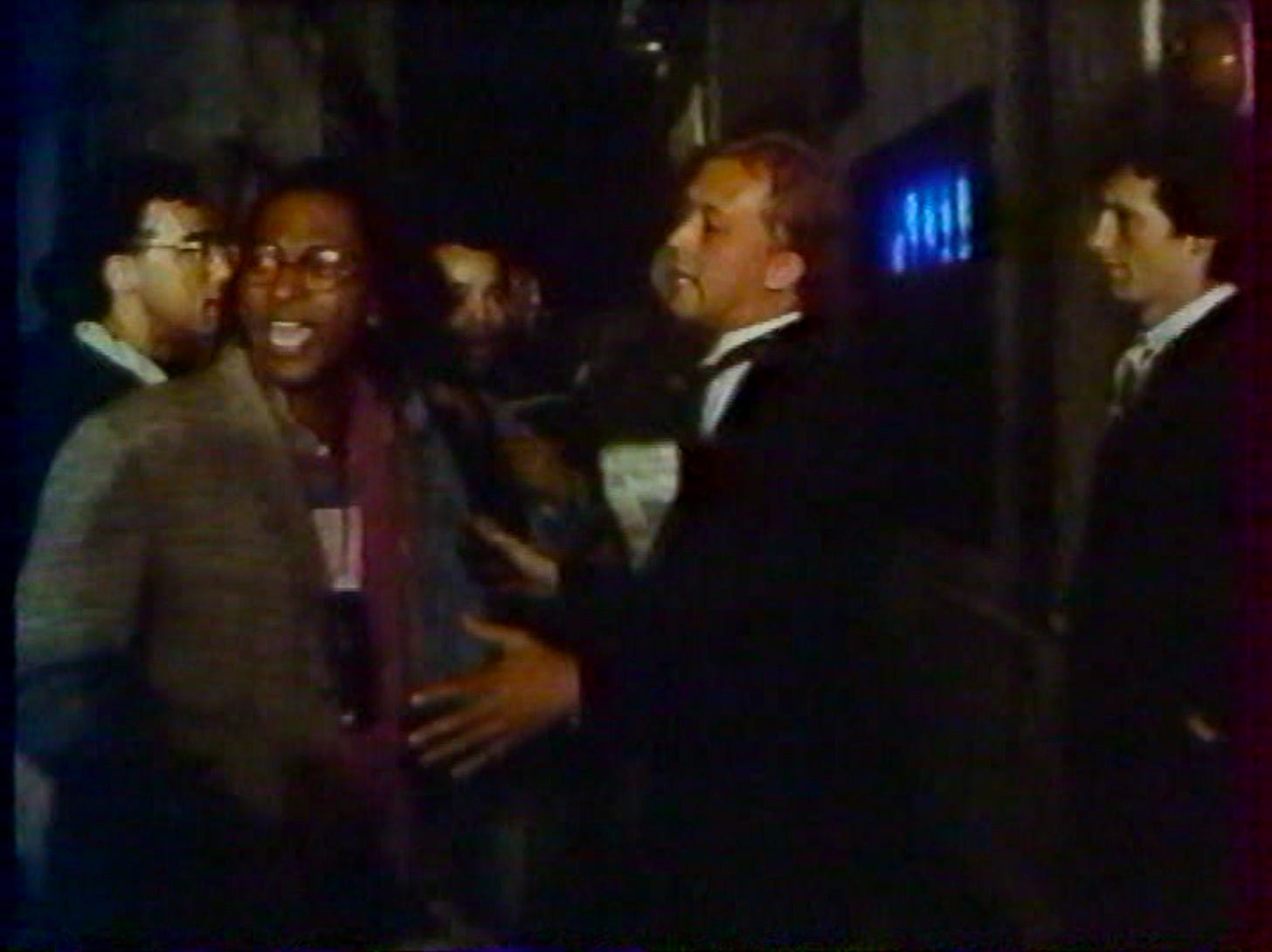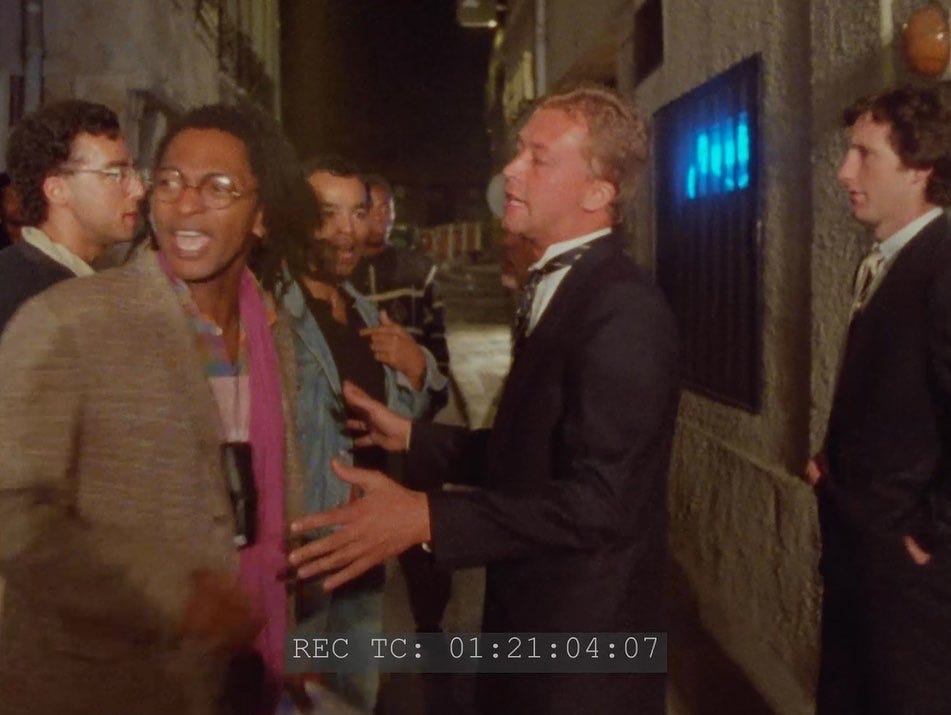Rendez-vous à Berlin
notes on two short films by Julius-Amédée Laou, premiering IRL next week......
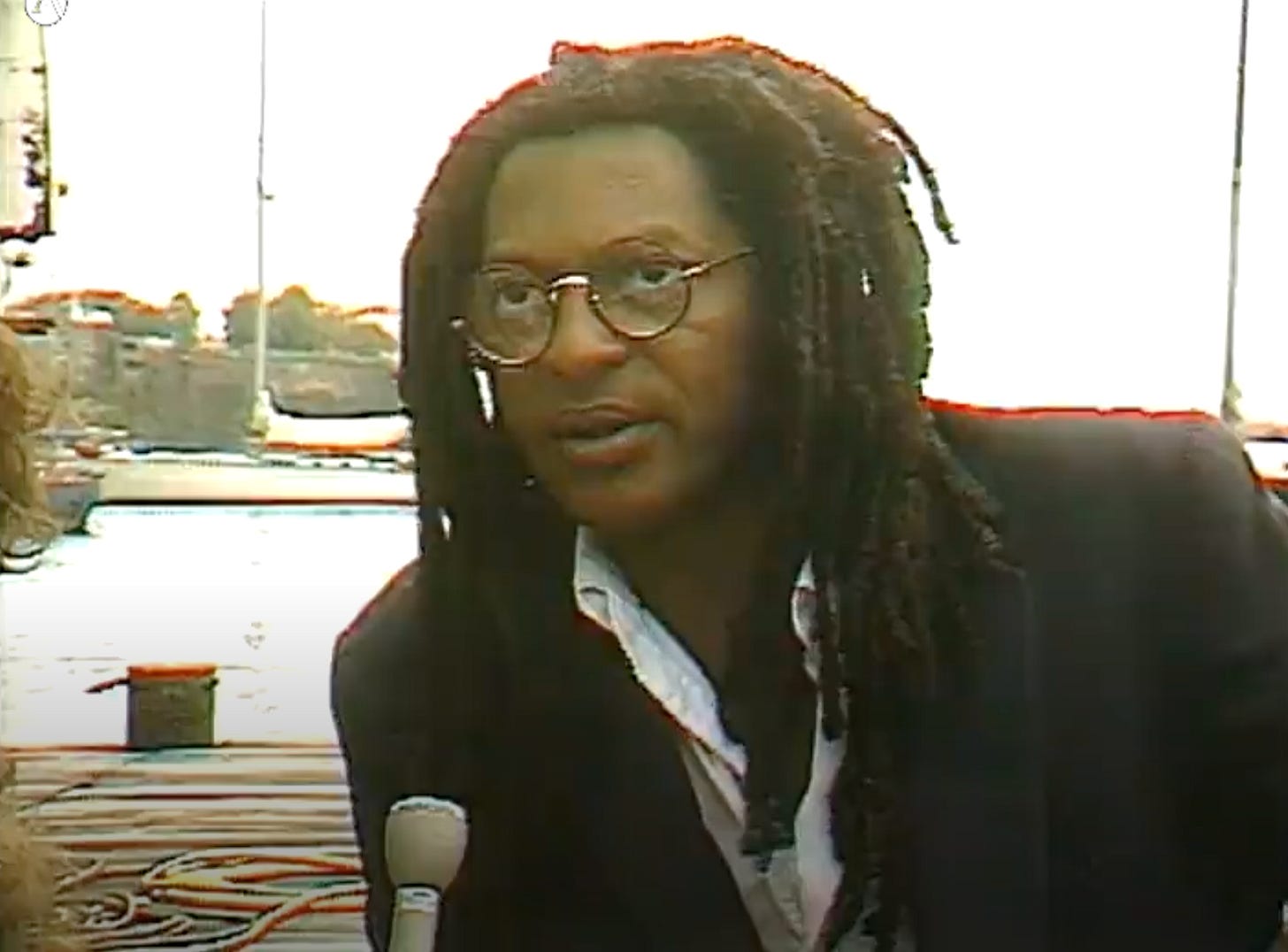
2023 IS MYSTERIOUS, at least so far, with few signs of letting up as the weather softens - a balmy winter here seems to augur more quiet, slow-motion apocalypses on the horizon. The “newsletter” function of Substack has always been a bit of a nuisance to me: if I’m not catering to a New York-exclusive audience then there’s little value in disseminating news about imminent screenings I programmed, information which is sadly aggressively available on my social media channels, even if a steady stream of lite “come to my screening!” spam would assuage some of the guilty feelings that pile up in the months between interminably long and ambitious Element X posts. But I’m writing today with honest-to-God news: I’m still alive and very happy, thrilled, in fact, to announce an occasion important enough to justify breaking glass in case of emergency… or, as my friend, the filmmaker and writer Gina Telaroli, put it once: “I will not apologize for this mass email. There is a time for them and that time is now!”
So: this coming Tuesday (yes, Valentine’s Day) I will be at Sinema Transtopia, in Berlin, with playwright and filmmaker Julius-Amédée Laou, to premiere two restorations of his first two short films, Solitaire à micro ouvert (Open Mic Solitaire, 1983) and Mélodies de Brumes à Paris (Mist Melodies in Paris, 1985.) The event is part of YA FRANÇA, YA FRANÇA, a stunning series organized by the indefatigable curator and researcher Léa Morin, which draws attention to the experiences faced by migrants in France in the late 1970s through the mid-1980s, “a time marked by postcolonial racist crimes and struggles against ‘colonialism at home’.” Both films are about Black men who are mad as hell and can’t take it anymore, but they are not facile portraits of victimhood; they are direct, angry, impassioned and humane, taking immediate grip of the viewer and refusing to let go.
Open Mic Solitaire follows a young man named Mathieu (Serge Ubrette) who, after his brother is murdered by a gang of skinheads, hijacks an Afro-French radio station and goes on-air to denounce the lack of solidarity between separate diasporic enclaves of Black migrants, and the vacuum it creates for exploitation by the French. The protagonist of Mélodies is Richard (Greg Germain), an Antillean man suffering hallucinatory bouts of PTSD over his experiences two decades earlier, forcibly conscripted into the French army during the Algerian war. (Another film in Léa’s series is Safrana by the Mauritanian filmmaker Sidney Sokhona, whose blistering earlier feature Nationalite: Immigre mashes together docudrama, verite and essay film styles, opening with an unforgettable voiceover monologue: “I am an immigrant. The same one who came clandestinely to France to work the assembly line. I am the same one whose grandfather was deported to the Americas during the slave trade. I am the same one whose father died in the Ardennes during World War II, a war in which he took part without knowing why…”)
I first sought Julius’ online acquaintance in late 2020, after reading about Solitaire in la loupe1, the now-defunct Facebook group that became a kind of online bazaar for film programmers seeking and sharing obscure cinema during lockdown 1.0. (My quest to program his films began with a quest to first see them, which probably motivates a lot of film programming2.) The restoration work on Solitaire had been done already at the Groupe de recherches et d'essais cinématographiques (GREC), which originally produced the movie, but it had not yet been translated into English. So I proposed it be included in THOUSANDSUNS Cinema, a free-to-view worldwide online cinematheque hosted by Media City Film Festival in the summer of 2021, curated by the great Oona Mosna. It was accepted, funds were distributed, subtitles painstakingly generated. The effort was aided immensely by Yasmina Price, who wrote the first ever English-language interview with Julius, at Screen Slate, by now an essential introduction to his working style and sensibility. Some kind soul on Letterboxd created a page for Solitaire, and a handful of reviews - most of them perceptive and sensitive - were posted as people acquainted themselves with the film. If you read one, make it this one by filmmaker Mandy Marcus - but I recommend avoiding any reviews until you’ve had a chance to see Solitaire for yourself.
Here I’ll segue to a pRoMoTiOnAl PrObLeM. Before the THOUSANDSUNS streams, almost nothing had been published about Julius’ films in English; most of the writing I’ve found in French or English dates back to film festivals from the 80s and 90s34; his renown in France is considerable, but most of that work is in theater, not cinema5. It is of course a challenge to get people excited about watching movies that never received conventional distribution, that haven’t been shown in decades, that were never translated, that aren’t easy to learn about on the internet or that lack an easy, readymade cultural context. This is the chicken-and-egg misery of film programming! The good news is that screenings (hopefully) beget more interest and, thus, more screenings. On the heels of that small victory, my friend Jesse Pires - film curator and director of Lightbox Film Center in Philadelphia - offered to find a budget to restore and translate Mélodies. Julius visited LTC Patrimoine, in Paris, which is the archive and lab which held his original material from the shoot of the film, and supervised the restoration himself. The February 14 screening will be the world premiere.
So this information is for sharing, with any colleagues or friends you, yes you, reading this, might have in Berlin. (It feels extra serendipitous given that the Berlinale kicks off the same weekend YA FRANÇA, YA FRANÇA concludes.) Below I would like to offer a behind-the-scenes taste; the “before” images are from a cruddy VHS transfer Julius provided me in 2020, the “after”s from the new Lightbox / LTC Patrimoine restoration. But to go out on a note of urgency: Julius’ 1987 feature debut La vieille quimboiseuse et le majordome, starring Jenny Alpha and Robert Liensol, remains unrestored. So does 1986’s Folie ordinaire d’une fille Cham, a rare fiction film by Jean Rouch, adapted from one of Julius’ early breakout plays. And Julius’ second and most recent feature, the shot-on-miniDV wedding dramedy Zouk, Marriage and Ouélélé! (2004), has never been commercially available in the U.S. or Europe. So while I hope you will spread word of the Berlin event and agree with me that the difference between old and new versions of Mélodies is nothing short of stunning, the real work of getting these films seen is just beginning.
Current Mood: Excited 😎
Current Music: Raul Lovisoni & Francesco Messina - Prati Bagnati Del Monte Analogo
Special thanks to Julius-Amédée Laou, Oona Mosna, Jesse Pires, Ntone Edjabe, Marie-Anne Campos, Léa Morin, Yasmina Price, Jon Dieringer, Lysa Hochroth, Leika Narcisse, Gary Vanissian, Caroline Caruelle and Denis Garcia.
You may or may not recall mention of la loupe in my interview published last summer with film programmers Valérie Osouf and Dyana Gaye, about their series Tigritudes.
No small part of my curiosity came from Julius’ official portrait photograph, easily the greatest author bio photo ever taken…….
See Mark Reid’s piece in the Winter 86/87 Black Film Review, published by the Black Film Institute of the University of the District of Columbia.
See Denis Bélanger and Michel Coulombe’s French-language interview with Julius in the summer 1988 edition of the Quebecois film journal Cine-Bulles.
For the last several years Julius has been writing and staging plays at Le Petit Théâtre de la Cour des poètes, in Montepellier, where he lives.



